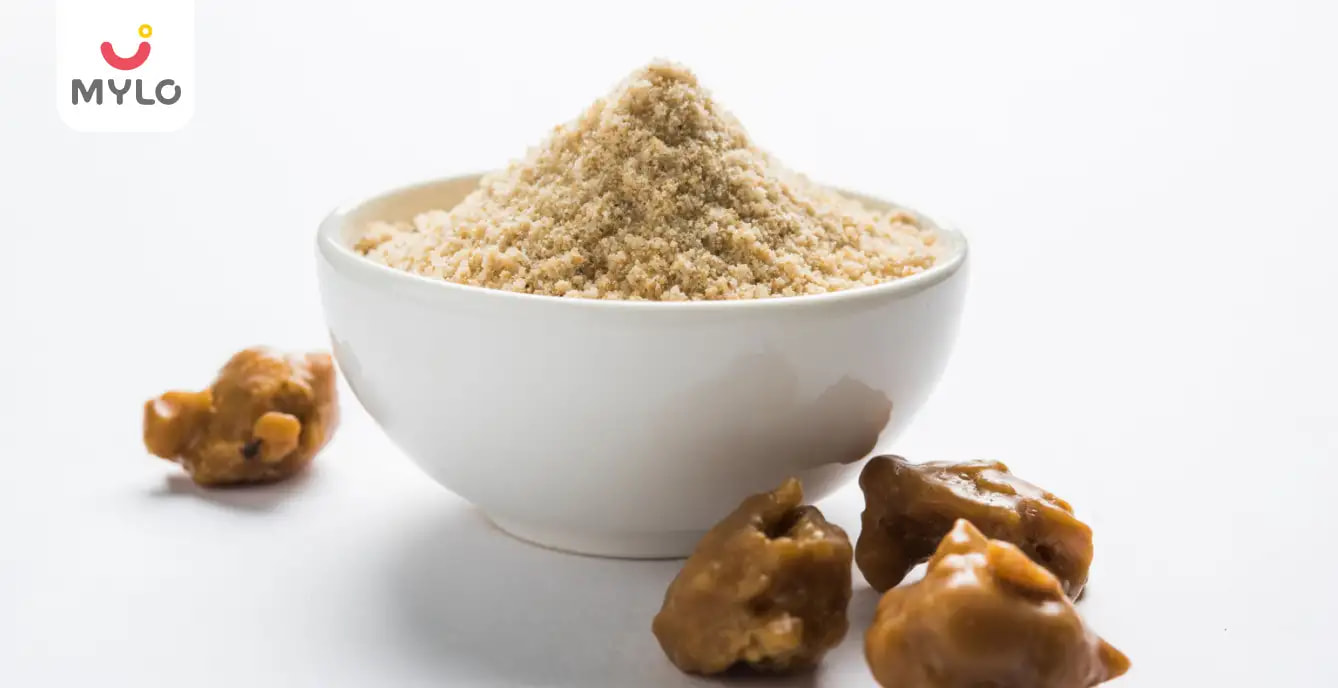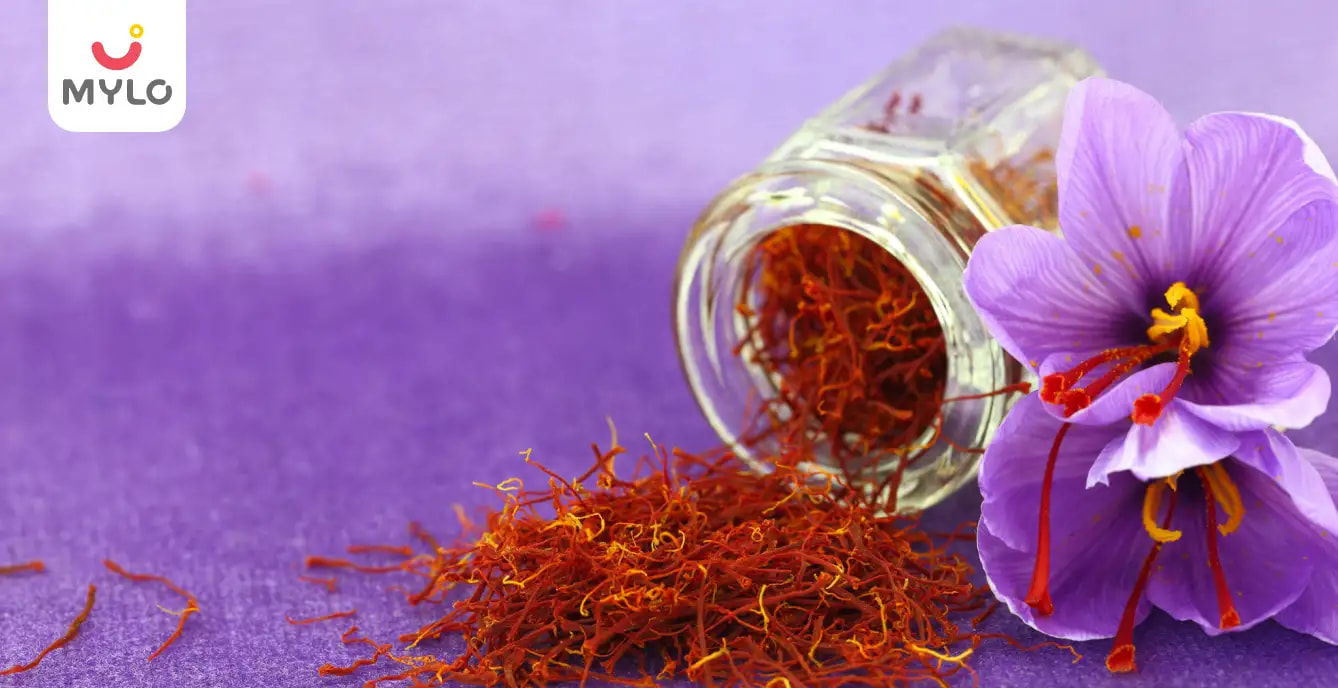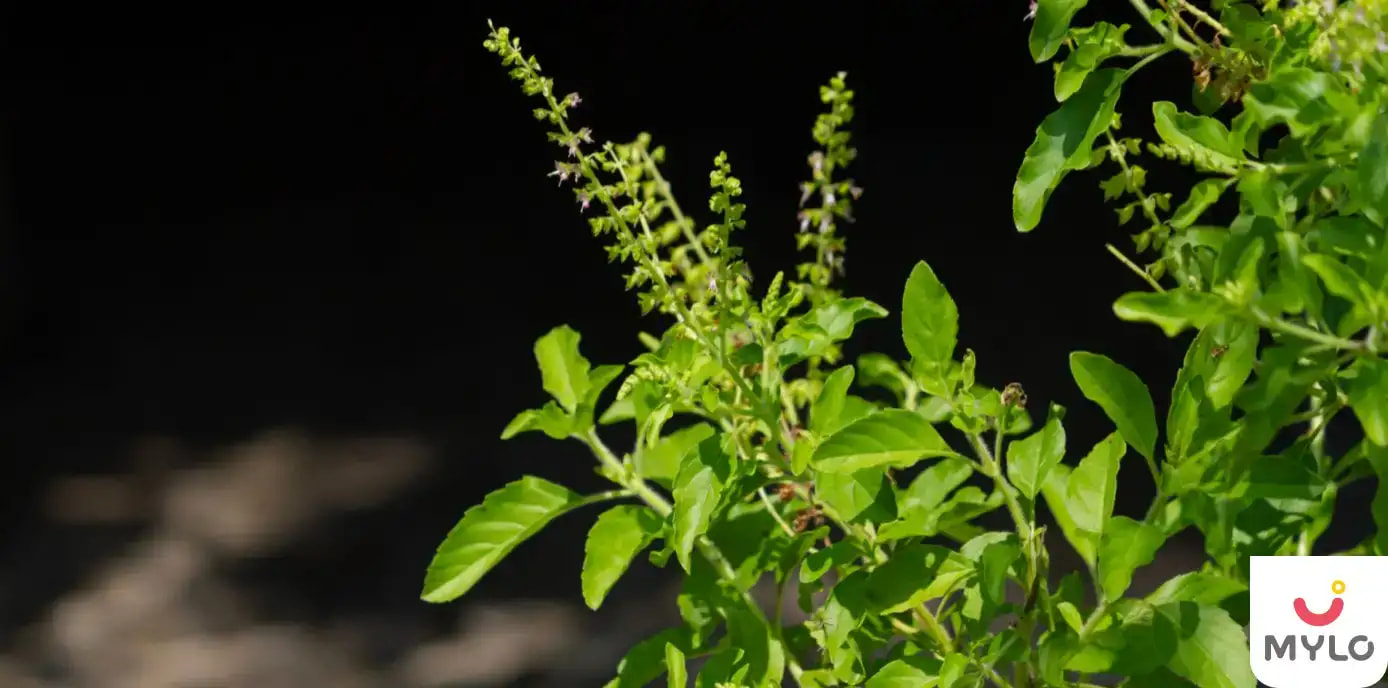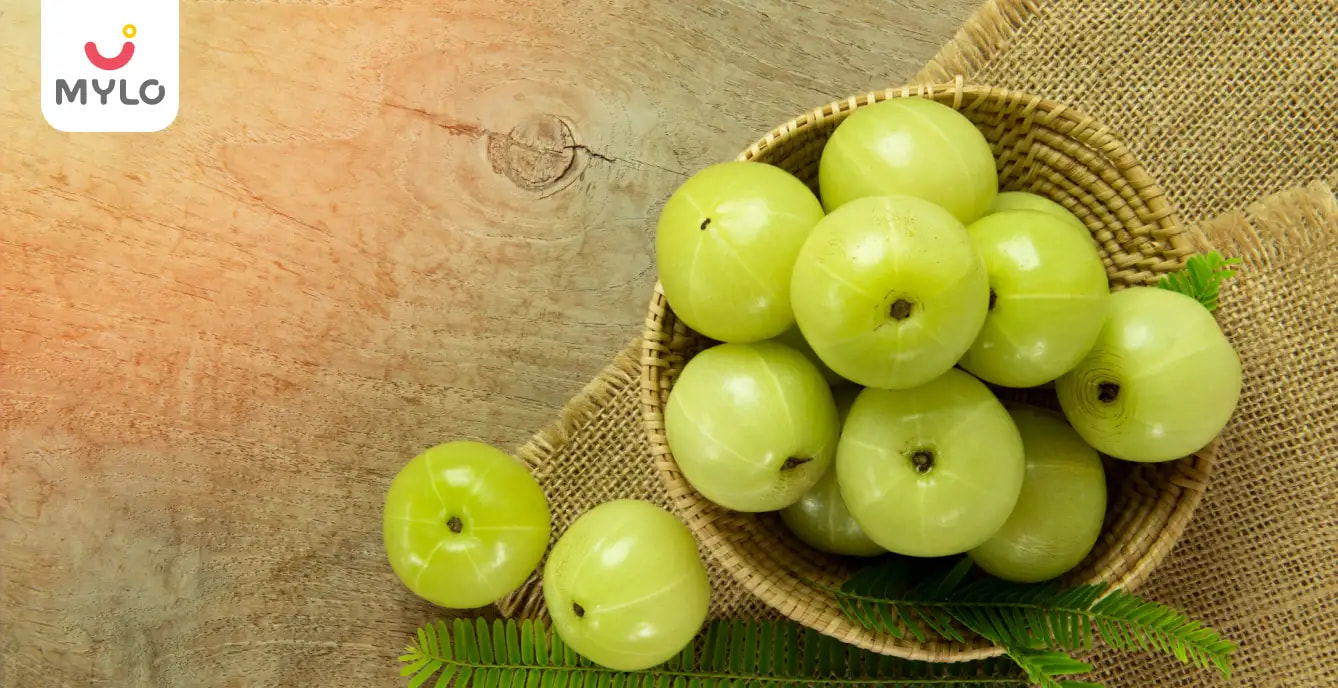Home

Diet & Nutrition

Hing (Asafoetida) During Pregnancy: Risks, Benefits & Precautions
In this Article

Diet & Nutrition
Hing (Asafoetida) During Pregnancy: Risks, Benefits & Precautions
Updated on 3 November 2023
Pregnancy is a time when a woman needs to be especially cautious about what she eats and drinks. While some foods are known to be beneficial for both the mother and the baby, others may pose risks and lead to complications. One such food is hing or asafoetida, a popular spice used in Indian cuisine. While hing is known for its digestive and medicinal properties, there is limited research on its effects during pregnancy. In this article, we will explore the risks, benefits, and precautions associated with consuming hing during pregnancy, to help expecting mothers make informed decisions about their diet.
Is It Safe to Use Hing During Pregnancy?
When it comes to consuming hing during pregnancy, caution is advised. Hing has abortifacient properties that can cause the embryo to die and prevent it from attaching to the uterine wall, leading to miscarriage. This is due to its ability to stimulate menstruation. Moreover, some pregnant women may be hypersensitive to its strong and pungent aroma, which may cause nausea and vomiting. Therefore, it is recommended to avoid the consumption of hing (asafoetida) during pregnancy to prevent any potential harm to the mother and the developing fetus.
Benefits of Hing (Asafoetida) During Pregnancy
Hing or Asafoetida is a medicinal herb that has many benefits including:
1. Alleviates digestive issues
Hing is known for its digestive powers and can help ease stomach aches, upset stomachs, acidity and even irritable bowel syndrome. Additionally, it may even help treat some respiratory problems.
2. Treats infections
Hing has anti-inflammatory, antimicrobial, and antiviral properties. As a result, consuming hing during pregnancy can aid in the treatment of genital infections such as urinary tract infections or sexually transmitted illnesses.
3. May relieve depression
Some women may experience depression during pregnancy. At a time like this, consuming asafoetida during pregnancy can help treat depression or reduce its symptoms because of its potent nerve-stimulant properties.
While Ayurveda suggests that consuming hing during pregnancy can reduce the air elements or 'vata' in the body and prevent interference with pregnancy, it is not recommended to consume hing during pregnancy due to the risk of complications. In fact, an overdose of hing during pregnancy can cause side effects like burping, gas, and diarrhea, and can harm both the mother and the developing fetus. Therefore, it is best to avoid consuming hing during pregnancy and consult a doctor before consuming it in the second and third trimesters. It is also important to note that pregnant women with blood pressure problems should avoid hing.
How to Consume Hing During Pregnancy?
In order to reap the benefits of asafoetida during pregnancy and minimise its side effects, it's best to consume it moderately. The recommended amount of Hing (asafoetida) to add to dishes is a pinch. Just adding a pinch of Hing daily to your pregnancy diet can help alleviate many digestive issues without causing any major health repercussions.
You may also like: Fennel Seeds During Pregnancy: Benefits, Risks & Nutritional Value
Side Effects of Asafoetida During Pregnancy
Consuming Hing or asafoetida while pregnant can cause certain side effects, especially when consumed in large amounts:
-
Nausea and vomiting are possible in pregnant women who detest the smell of hing.
-
Hing has abortive properties, which may stop the embryo from implanting and result in miscarriage.
-
Hing is harmful to nursing mothers. It can contaminate breast milk and even harm newborns.
-
Hing should be avoided by expectant mothers who have high blood pressure since it may interact with medications that lower blood pressure.
-
Excessive Hing consumption can cause throat infections, gas, diarrhea, burping, and swollen lips.
-
Hing should be completely avoided during the first trimester of pregnancy.
How to Add Hing to the Pregnancy Diet?
It is recommended to avoid consuming hing in the first trimester of pregnancy. However, after that period, hing can be consumed in moderate amounts by adding a pinch of it to vegetarian dishes like daal, rajma, or chole. It is important to note that hing should never be consumed raw as it is extremely toxic and dangerous. Instead, it should be thoroughly blended while cooking. In the second and third trimesters, it is advisable to avoid consuming hing dishes on a daily basis.
Why Do Pregnant Women Apply Hing on Their Stomach During Pregnancy?
Applying Hing on stomach during pregnancy or otherwise can help relieve the discomfort caused by bloating and indigestion. It is a time-tested home remedy that offers instant relief from any pain caused by bloating, flatulence and upset stomach. As a result, it is popular among pregnant women to apply asafoetida on their stomach during pregnancy.
Can Hing Lead to a Miscarriage?
Yes, Hing or asafoetida has abortifacient properties that can lead to miscarriage if consumed in high amounts during pregnancy. It is better to avoid hing or asafoetida in the first trimester of pregnancy and consume it in small amounts in the second and third trimesters after consulting a doctor. Pregnant women must consume it with caution since its strong aroma can lead to nausea and vomiting, and too much can lead to miscarriage. Therefore, it is recommended to eliminate this spice from the diet or control its use during pregnancy and lactation.
References
1. Chen L, Zhu Y, Hu Z, Wu S, Jin C.(2021). Beetroot as a functional food with huge health benefits: Antioxidant, antitumor, physical function, and chronic metabolomics activity. Food Sci Nutr.
2. Amalraj A, Gopi S. (2012). Biological activities and medicinal properties of Asafoetida: A review. J Tradit Complement Med.
Tags
Hing during pregnancy in Hindi, Hing during pregnancy in Tamil, Hing during pregnancy in Telugu, Hing during pregnancy in Bengali



Written by
Roohi Kalra
Get baby's diet chart, and growth tips

Related Articles
Related Questions
Influenza and boostrix injection kisiko laga hai kya 8 month pregnancy me and q lagta hai ye plz reply me

Hai.... My last period was in feb 24. I tested in 40 th day morning 3:30 .. That is faint line .. I conculed mylo thz app also.... And I asked tha dr wait for 3 to 5 days ... Im also waiting ... Then I test today 4:15 test is sooooo faint ... And I feel in ma body no pregnancy symptoms. What can I do .

Baby kicks KB Marta hai Plz tell mi

PCOD kya hota hai

How to detect pcos

RECENTLY PUBLISHED ARTICLES
our most recent articles

Diet & Nutrition
গর্ভাবস্থায় আলুবোখরা: উপকারিতা ও ঝুঁকি | Prunes During Pregnancy: Benefits & Risks in Bengali

Diet & Nutrition
গর্ভাবস্থায় হিং | ঝুঁকি, সুবিধা এবং অন্যান্য চিকিৎসা | Hing During Pregnancy | Risks, Benefits & Other Treatments in Bengali

Women Specific Issues
স্তনের উপর সাদা দাগ: লক্ষণ, কারণ এবং চিকিৎসা | White Spots on Nipple: Causes, Symptoms, and Treatments in Bengali

Diet & Nutrition
গর্ভাবস্থায় পোহা: উপকারিতা, ধরণ এবং রেসিপি | Poha During Pregnancy: Benefits, Types & Recipes in Bengali

Diet & Nutrition
গর্ভাবস্থায় মাছ: উপকারিতা এবং ঝুঁকি | Fish In Pregnancy: Benefits and Risks in Bengali

Diet & Nutrition
গর্ভাবস্থায় রেড ওয়াইন: পার্শ্ব প্রতিক্রিয়া এবং নির্দেশিকা | Red Wine During Pregnancy: Side Effects & Guidelines in Bengali
- ইনার থাই চ্যাফিং: কারণ, উপসর্গ এবং চিকিৎসা | Inner Thigh Chafing: Causes, Symptoms & Treatment in Bengali
- গর্ভাবস্থায় ব্রাউন রাইস: উপকারিতা ও সতর্কতা | Brown Rice During Pregnancy: Benefits & Precautions in Bengali
- Velamentous Cord Insertion - Precautions, Results & Safety
- Unlock the Secret to Flawless Skin: 7 Must-Have Qualities in a Face Serum
- Unlock the Secret to Radiant Skin: How Vitamin C Serum Can Transform Your Complexion
- Gender No Bar: 10 Reasons Why Everyone Needs a Body Lotion
- Unlock the Secret to Radiant Skin How to Choose the Perfect Body Lotion for Your Skin Type
- Top 10 Reasons to Apply a Body Lotion After Every Bath
- Communication in Toddlers: Milestones & Activities
- How to Improve Vocabulary for Toddlers?
- A Comprehensive Guide to Understanding Placenta Accreta
- Vulvovaginitis in Toddlers Causes, Symptoms and Treatment
- A Comprehensive Guide to Understanding Cerebral Palsy in Children
- Bitter Taste in Mouth During Pregnancy: Understanding the Causes and Remedies


AWARDS AND RECOGNITION

Mylo wins Forbes D2C Disruptor award

Mylo wins The Economic Times Promising Brands 2022
AS SEEN IN

- Mylo Care: Effective and science-backed personal care and wellness solutions for a joyful you.
- Mylo Baby: Science-backed, gentle and effective personal care & hygiene range for your little one.
- Mylo Community: Trusted and empathetic community of 10mn+ parents and experts.
Product Categories
baby carrier | baby soap | baby wipes | stretch marks cream | baby cream | baby shampoo | baby massage oil | baby hair oil | stretch marks oil | baby body wash | baby powder | baby lotion | diaper rash cream | newborn diapers | teether | baby kajal | baby diapers | cloth diapers | laundry detergent 6472 | lactomama lactation granules |








